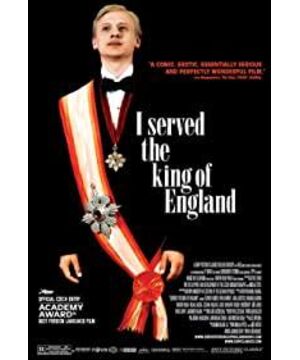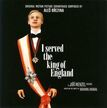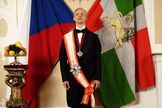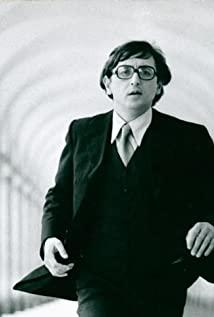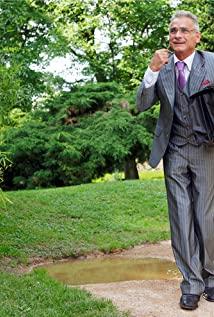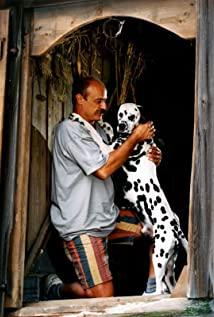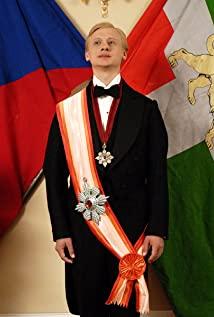Just like the humorous and casual style of the original novel, Ely Manzo, who is nearly 70 years old, has handled the weight with great ease, proving his evergreenness with his creation, and at the same time proving that he is the unshakable candidate for the adaptation of Herabal's works. "I" started from the release of Jan Dite, who had been in prison for many years, through an amnesty. Through subjective remembrance, it tells his life experience as a waiter. The movie maintains the two spaces of the present and the memory, always revealing a sense of comedy that is not excessive. Exaggerated, peaceful, joking, cold, fantasy, documentary, "I" can freely switch between several groups of different keywords. Towards the end, a complete interpretation of the theme was made with a key item mirror, allowing Dieter to face countless mirror images in front of him in the empty room. (Note 1)
No one can pat his chest after reading it, and talk about Dieter's true attitude towards Germans and Nazi Germany. The Czechs hold a glass in their hands, and you like beer. There are inherently happy cells in the body, but there are historical pains that are difficult to dispatch. Compared to the foreman and others in the Paris restaurant, the little Dieter seems to be just a young man who chases women and dreams of getting rich but has no belonging. But if you use simple right and wrong to criticize Dieter, it would be a big mistake.
"I" always maintains an endless narrative rhythm, but the inner emotions are not casually visible. The title "I have served the King of England" actually has nothing to do with the King of England. This allusion is that the film Ridditt asked the hotel foreman why he is proficient in all kinds of hospitality. He always said: "I have served the King of England." At the end of the original work, Dieter, who was "exiled" to the border forest in the northern Czech Republic (ie, the border area between Czech Republic and Germany), explained his arrangement for what happened after him: the wreckage flowed away from the two countries in the north and south, and merged in the Atlantic Ocean. At this point, the film is restrained, leaving extended thoughts to the audience.
The Czech Republic sent "I" to represent the country in the 2008 Oscars for the best foreign language film. Years of preparation and halo may be able to return a good result. In addition, "Vratne lahve" (Vratne lahve) by Czech director Jan Sverak, also the winner of the best foreign language film, is also available; if you want to get a glimpse of the best of Czech movies, don't miss it.
http://www.mtime.com/my/moviel/blog/638044/
=============================== ========================== The
above content is an introductory thing, not in-depth, if you really want to go deeper, then go with the book, Here we will talk more about a few things that appeared in the movie.
1. Mirror
In the film, when indulging in the gentleness of the country, Dieter, who is good at making small tricks to please women, always leans on a mirror to make the other person nostalgic for the beauty of the carcass. In the mirror, they seem to be another selves. The female characters who are intimate with Dieter all use mirrors, which is obviously symbolic.
The function of the mirror is to reflect another self, or even multiple different selves. Except for these occasions, the mirror should not be used in the fragments of the elderly Dieter and the red-haired woman. The mirror sees oneself and refracts the heart. Although Dieter still wanted to face her, he did not show any further emotions and indulged in memories, which proved that he had long given up on the pursuit of the past, after all, time is not forgiving.
2. Building roads
This is even more obvious, to build a road that doesn't seem to be repairable, a career that I'm looking for. Dieter was wrong in his "self-righteous" choice, climbing level by level, and quickly falling down at the apex, and there was no satisfaction to show other than sticking banknotes on the wall. Even if Lisa was handed in, he still had good luck. He didn't need to serve the King of England. It was enough to have a medal awarded by the King of Ethiopia.
Dieter always wanted to be his ideal self, a millionaire, and took the initiative to go to jail for this, but he still didn't see him among the crowds of swan feathers in the prison. He was not born in this rank, the small man, only in the union with Lisa, went to the Germans to get closer and proved that he had no prejudice as he wished.
3. Money
seems to be okay if the film is changed to "How to Become a Millionaire". From the recurring coin tossing to the falling of banknotes, covering the floor, stamps blowing in the wind, and flying goose feathers, money is Dieter's first pursuit. , At the same time, it is also what others who don't even let go of small money, desperately desire. In front of it, the so-called dignity and honor seem to be put aside (but the film involves more than that).
Is Dieter a successful person who spares little money to keep big money? Obviously not. The elderly Dieter was satisfied with this in his whole life. In the end, the so-called wealth is calculated by the prison life in the high wall. This is not an ironic ending.
View more about Obsluhoval jsem anglického krále reviews


